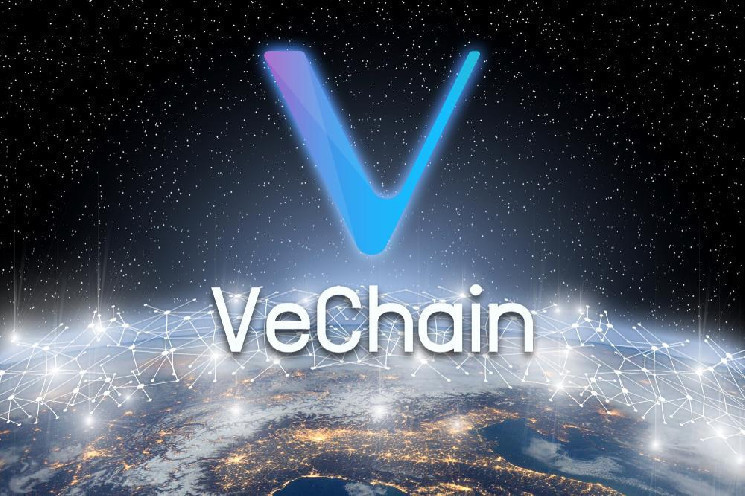[ad_1]
- The latest weekly report from Xinmin highlights the collaboration established in 2021 between Renji Hospital and VeChain to develop the “MyBaby” smart care medical project.
- Renji Hospital is recognized as a leader in the medical blockchain sector and joined the Digital Carbon Ecosystem initiated by DNV and VeChain in 2019.
Xinmin Weekly, a magazine published in Shanghai China, has just featured VeChain’s ‘MyBaby’ IVF application as part of its “smart Hospital’ use cases in China. The Mybaby Project was launched back in 2021, when Vechain, the smart contract blockchain offering software solutions for businesses collaborated with Renji Hospital an affiliate of the Shanghai Jiaotong University School of Medicine.
Through the collaboration, the MyBaby project leverages blockchain technology to enhance transparency and privacy, revolutionizing healthcare and service delivery, thus allowing Vechain to push its boundaries in real-world applications that could benefit the economy.
Here’s What you Need to Know about “My Baby”
As published, MyBaby is the pioneering service that merges the benefits of third-party guaranteed data verification with the permanence of blockchain technology. It securely uploads all relevant information, images, and data trails from the imagery generated by medical devices to the delivery of the zygote onto the VeChainThor blockchain, accessible only to authorized users of the MyBaby Application. The MyBaby application improves user experience by allowing individuals to track fertilized egg processes and addresses privacy concerns.
By validating critical stages of In-Vitro Fertilization (IVF), MyBaby ensures the uncertainty surrounding embryo in vitro culture is transformed into clear, real-time information, which helps reduce patient anxiety and enhance their experience. The project has also secured a national invention patent.
Renji Hospital’s adoption of advanced technology underscores its commitment to improving equitable access and patient quality of life. As stated in a thread on X, VeChain’s technology supports Renji Hospital in managing over 400,000 patients annually, contributing to China’s IVF market, which is expected to exceed $9.04 billion by 2030.
CNF reported that in addition to the solutions it introduces for real-world blockchain applications, VeChain also supports users through VeSwap. This Decentralized Finance (DeFi) platform within the VeChain ecosystem allows users to trade tokens and provide liquidity. Through the partnership with Renji Hospital, users engaging in these activities can help sustain impactful real-world application projects like MyBaby. Thus, VeSwap serves a dual purpose: to financially benefit users while furthering VeChain’s mission to promote real-world blockchain adoption.
VeChain (VET) has undergone a remarkable transformation, with a rally exceeding 200%, as it aims to reach a yearly high by December 2024. Over the past month, VET has seen an impressive surge of 265.5%, boosting its market cap to nearly $6 billion. Recently, it experienced a 24-hour decrease of 10%, lowering its market cap to approximately $4 billion.
However, the journey to recovery remains challenging, as VeChain’s current value is still 76% below its all-time high of 0.281 achieved in April 2021. To achieve the $0.1 mark, the token would need to climb by 40%. Our analysis suggests that if VET can maintain its position above the critical support levels of $0.05 to $0.06, it could pave the way for a significant breakout.
[ad_2]

